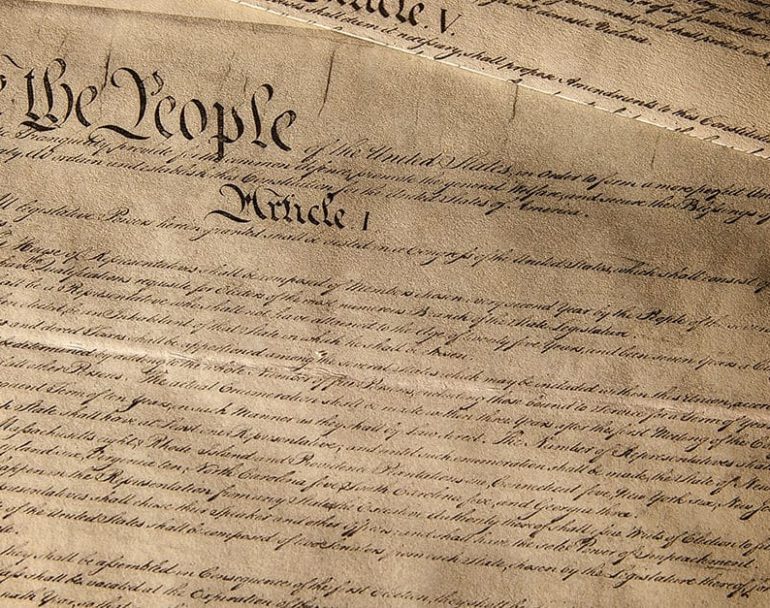
Parchment Barriers and the Determinateness of Constitutional Text
Recently, Jonathan Gienapp, a Stanford historian, has published what is likely to be a widely read book on constitutional interpretation. Second Creation: Fixing the Constitution’s Meaning in the Founding Era argues that there was no agreement on how to interpret the Constitution at the time of the Constitution’s enactment and that standard interpretive positions only emerged after a decade of controversy. Gienapp’s book has already been the subject of a symposium at Balkinization.
I am now reading Gienapp’s book and have found much to disagree with. I plan to write more about this after I finish it. John McGinnis and I have already written a response to claims from Jack Balkin that Gienapp’s evidence shows that our interpretive position—Original Methods Originalism—is defective.
Now, Ilan Wurman, a young law professor at Arizona State, has written a very critical review of the book, which sounds many of the right themes. One claim that Gienapp makes is that the Framers’ distrust of parchment barriers showed that they did not believe that the language of the Constitution settled its meaning. Rather, the Framers relied upon the structure of the Constitution. This is a typical example of the type of argument Gienapp makes and why I believe the book is problematic.
One problem with the argument is identified by Wurman, who writes:
True, the framers were concerned about mere “parchment barriers.” They believed a mere declaration of rights or limits on power was insufficient to enforce such rights and limits because words could too easily be ignored by those in power. . . . What really matter[ed to the Framers according to Gienapp] is the Constitution’s structure, the checks and balances and separation of powers that ensure, as Madison writes, that “ambition [is] made to counteract ambition.” But what creates this structure—this separation of powers? The words of the Constitution. If words were so imprecise and meaningless, and the Constitution were not confined to its words, then the separation of powers itself would be meaningless.
But there is another problem with Gienapp’s argument. One can believe that parchment barriers—the words of the Constitution—are not sufficient to protect against unconstitutional actions while also believing that the Constitution had a determinate meaning at the time of its enactment. In fact, this is a very common understanding and is one popular justification for judicial review—without judicial review, Congress and the states would ignore the Constitution’s meaning. Consequently, one might believe that it is important to establish a constitutional structure in order to ensure that the Constitution’s determinate meaning be followed. This is the conventional understanding of what underlay the Founders’ remarks about parchment barriers and I believe that understanding is correct.